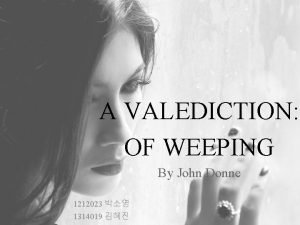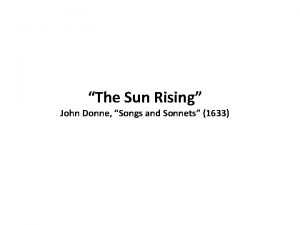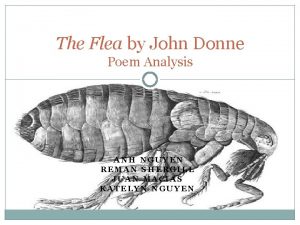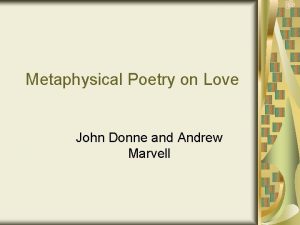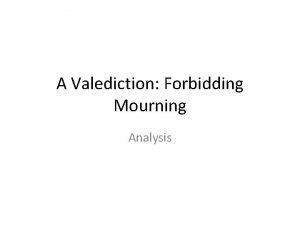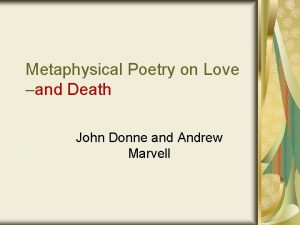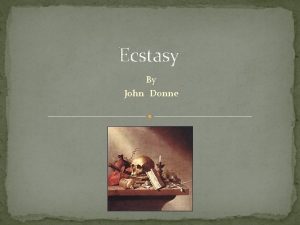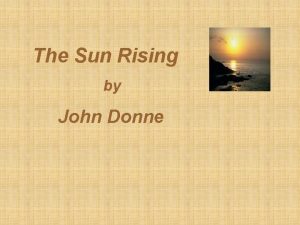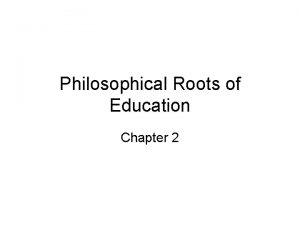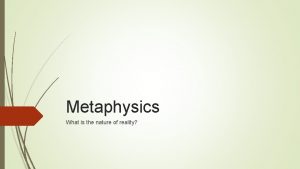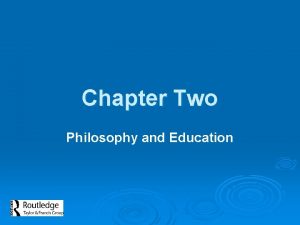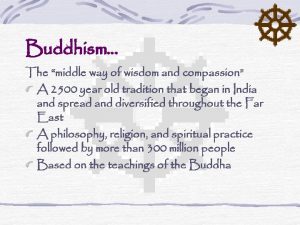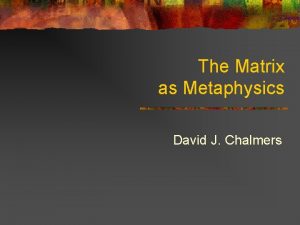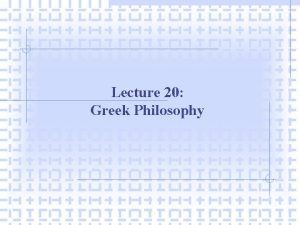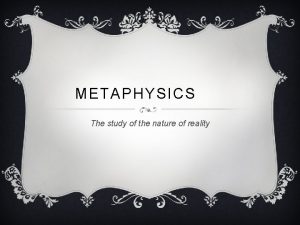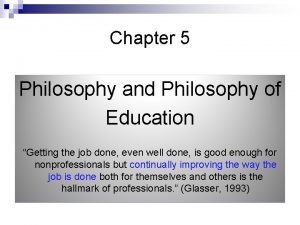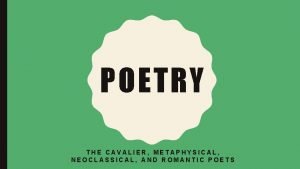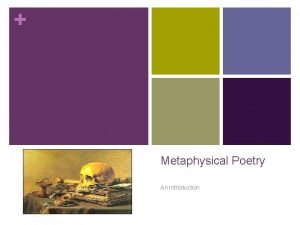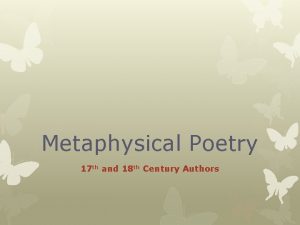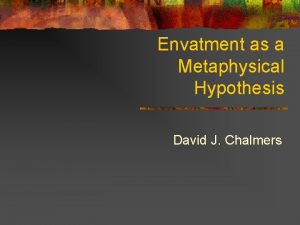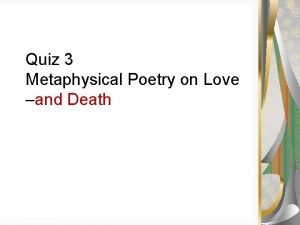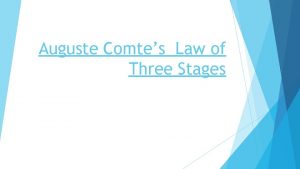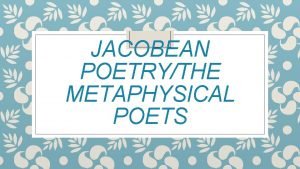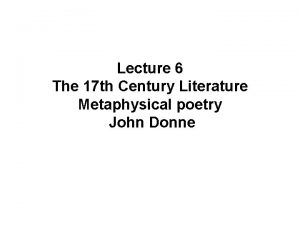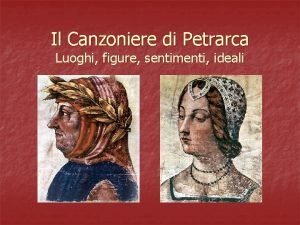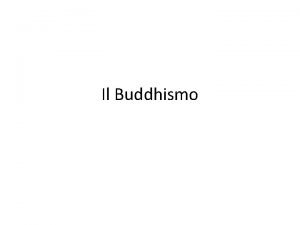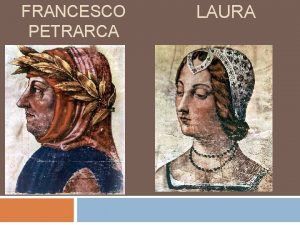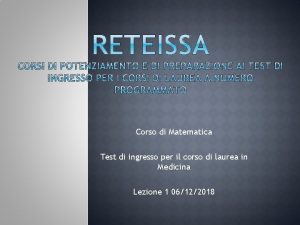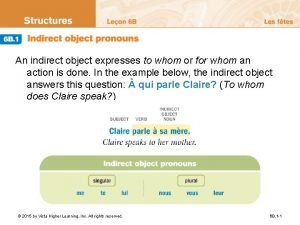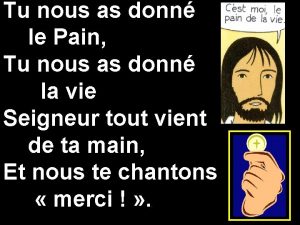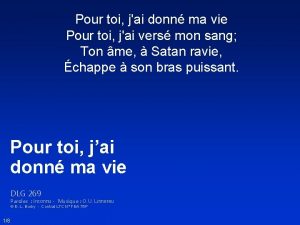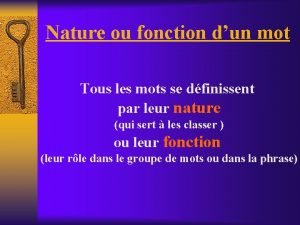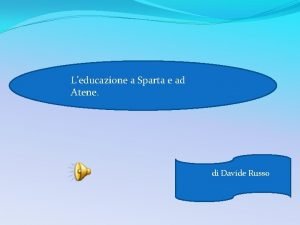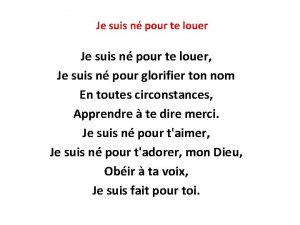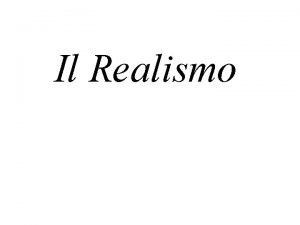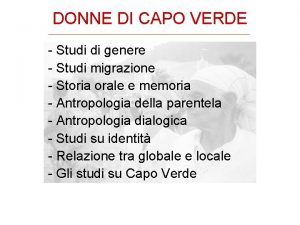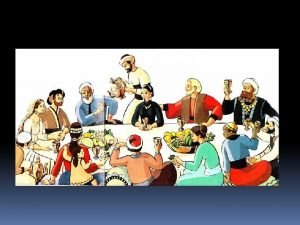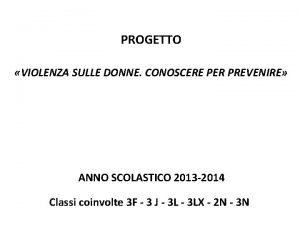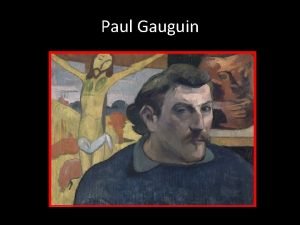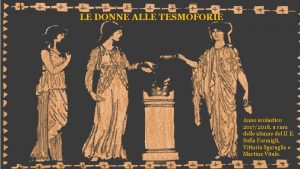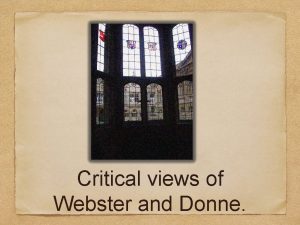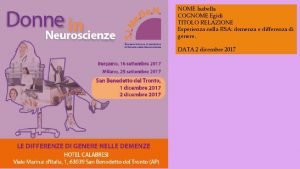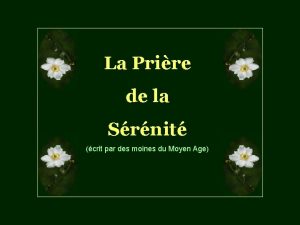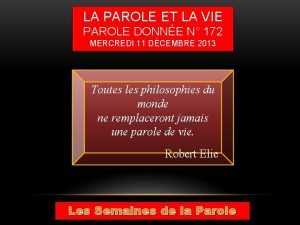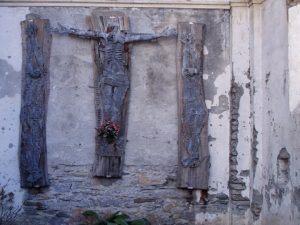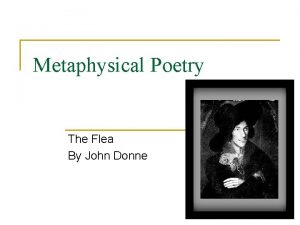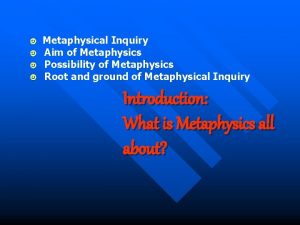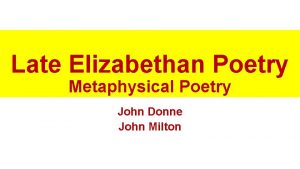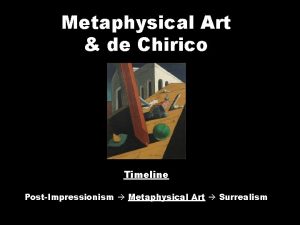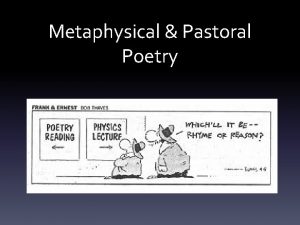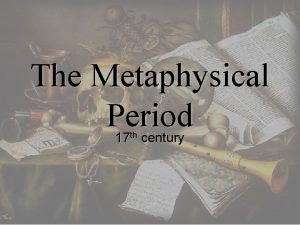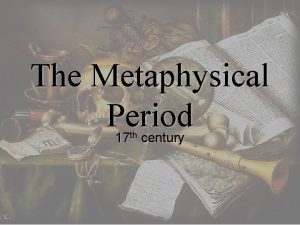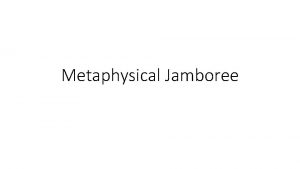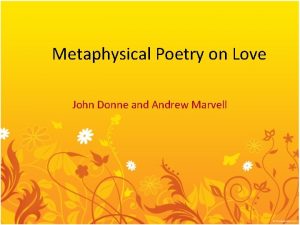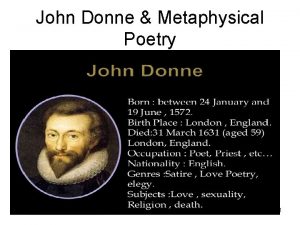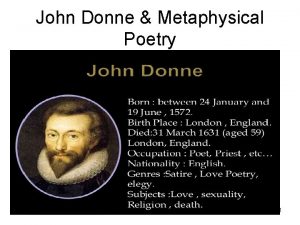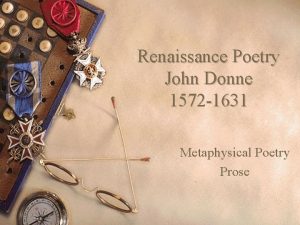John Donne Metaphysical Poems metaphysics deals with questions








































































- Slides: 72

John Donne Metaphysical Poems (metaphysics deals with questions that can't be explained by science. It questions the nature of reality in a philosophical way. )

John Donne & Metaphysical Poetry 2

Donne’s Early Life • John Donne was born in Bread Street, London in 1572 to a prosperous Roman Catholic family - a precarious thing at a time when anti-Catholic sentiment was rife in England, and the practice of Catholicism was illegal. • Donne’s mother was the great-niece of the Roman Catholic martyr, Thomas More. This tradition of martyrdom would continue among Donne's closer relatives- many were executed or exiled for religious reasons. Religion played a passionate and tumultuous role throughout Donne’s life. • His father, also named John Donne, was a well-to-do iron dealer and a respected Roman Catholic who avoided unwelcome government attention out of fear of persecution. Donne's father died suddenly in 1576, and his mother married a wealthy widower a few months later.

Donne’s Education & Some Personal Tragedy • In 1583, the 11 -year-old Donne began studies at Hart Hall, now Hertford College, Oxford (there was no chapel, and it was popular among Catholics because they couldn’t check attendance at services). After three years of studies there, Donne was admitted to the University of Cambridge where he studied for another three years. However, Donne didn’t obtain a degree due to his Catholicism, since he refused to take the Oath of Supremacy required to graduate. • He was admitted to study law as a member of Thavies Inn (1591) and Lincoln's Inn (1592), and it seemed natural that Donne should embark upon a legal or diplomatic career. • Donne's brother Henry was also a university student prior to his arrest in 1593 for harboring a Catholic priest, William Harrington, whom he betrayed under torture. Around the time of his brothers death, Donne to began questioning his Catholic faith.

So Much Death and Poverty… • Married in 1601, had 12 children (incl. 2 stillborns) • Three more children died before age 10 • His wife died in 1617; he never remarried – Rare for this time • In a state of despair, Donne noted that the death of a child would mean one less mouth to feed, but he could not afford the burial expenses. He mourned her deeply and wrote of his love and loss : (

Travel & True Love As a young man hungry for adventures, he went with Essex on the expedition to Cadiz in 1596 and later became secretary to Lord Keeper Egerton. In 1601 he eloped with the niece of Lord Keeper and was imprisoned by the girl's father. For several years after his release, he lived in poverty. But during this time he wrote some of his most beautiful poems, many of which were believed to have been written to his wife. These were known as his youthful love lyrics. 6

Life In 1615 he gave up Catholic faith and entered the Anglican Church and soon became Dean of Saint Paul's Church. As the most famous preacher during the time, he wrote many religious sermons and poems. And these were known as his sacred verses. John Donne’s House

Just So You Know… • “Donne wrote some of the most passionate love poems and most moving religious verse in the English language” (Damrosch and Dettmar 1669). • He is hailed as the “Monarch of Wit” (Dickson xi). • He wrote FIVE different types of poems: – Satires – Elegies – Verse Letters – Songs & Sonnets – Holy Sonnets or “Divine Poems”

Satires • Dealt with common Elizabethan topics, such as corruption in the legal system. • They also dealt with the problem of true religion, a matter of great importance to Donne. He argued that it was better to examine carefully one's religious convictions than blindly to follow any established tradition, for none would be saved at the Final Judgment.

Stage 1: Early Poetry (Elegies) • Donne's earliest poems: Knowledge of English society coupled with sharp criticism of its problems • His Erotic Poetry- Donne’s early career was also notable for his erotic poetry(sexy stuff, wooo), especially his elegies • He employed unconventional metaphors to portray sex

Stage 2 Poetry- (Neo) Platonic Love • Physical love (animal lust) is base, common, low-born; • Spiritual love is worthy, unique, divine • Love, through procreation, is the closest humans come to immortality • Comprehension of love brings comprehension of beauty as infinite • Stages of Platonic love: 1) Initiated by Sense 2) Founded in Reason 3) Attains Spiritual Quality • A Neoplatonic Syllogism: 1. God is everlasting, perfect divine love; 2. True, spiritual love is everlasting and perfect; 3. Therefore, two lovers united by spiritual love are close to divinity. • These works include: “A Valediction: Forbidding Mourning” and “The Ecstasy”

Stage 3 - Religious Poetry ❖a more somberand pious tone in his later poems: Because of His numerous illnesses, financial strain, and the deaths of his friends ❖Donne focused his literary career on religious literature. He quickly became noted for his sermons and religious poems.

Three stages of Donne’s Poetry Not necessarily chronological, but an easy way to categorize Donne’s works. 1. 2. 3. The young “Jack Donne: ” reflected by a misogynistic, lusty, and cynical persona in his early poetry (“The Flea, ” “The Bait, ” and “Song—Go and Catch a Falling Star”); The courting / married lover: reflected by a Neoplatonic ideal of transcendent love- but a love also founded in the physical (“A Valediction: Forbidding Mourning” and “The Ecstasy”) Dr. Donne, the dean of St. Paul’s Cathedral: religious poetry (Holy Sonnets) and prose (“Meditation 17”) that sometimes praises, sometimes struggles with God’s transcendent perfection.

Religious Poetry Cont (Stage 3) • His early belief in the value of skepticism now gave way to a firm faith in the traditional teachings of the Bible. • The lines of these sermons come to influence future works of English literature. – E. g. Ernest Hemingway‘s For Whom the Bell Tolls, which took its title from a passage in Meditation XVII – Thomas Merton’s No Man is an Island, which took its title from the same source.

Meditation XVII • No man island, entire of itself; every man is a piece of the continent, a part of the main. If a clod be washed away by the sea, Europe is the less, as well as if a promontory were, as well as if a manor of thy friend’s or of thine own were. Any man’s death diminishes me because I am involved in mankind, and therefore never send to know for whom the bell tolls; it tolls for thee.

Later Poetry Continued- A Challenge to Death Towards the end of his life Donne wrote works that challenged death, and the fear that it inspired in many men, on the grounds of his belief that those who die are sent to Heaven to live eternally.

* 17

What Does Metaphysical Mean? • • • The word 'meta' means 'after, ' so the literal translation of 'metaphysical' is 'after the physical. ' Basically, metaphysics deals with questions that can't be explained by science. It questions the nature of reality in a philosophical way. Here are some common metaphysical questions: – Does God exist? – Is there a difference between the way things appear to us and the way they really are? Essentially, what is the difference between reality and perception? – Is everything that happens already predetermined? If so, then is free choice non-existent? – Is consciousness limited to the brain? Metaphysics can cover a broad range of topics from religious to consciousness; however, all the questions about metaphysics ponder the nature of reality. And of course, there is no one correct answer to any of these questions. Metaphysics is about exploration and philosophy, not about science and math.

So… what’s metaphysical poetry? • The poems classified in this group share common characteristics: they are all highly intellectualized, use rather strange imagery, use frequent paradox, contain extremely complicated thought, wit, and argument. • Metaphysical poetry is a classification of poetry, not a genre. • The main poets of this group didn't read each other's work and didn't know that they were even part of a classification. • Literary critic and poet Samuel Johnson first coined the term 'metaphysical poetry' in his book Lives of the Most Eminent English Poets (1179 -1781). In the book, Johnson wrote about a group of 17 th-century British poets that included John Donne, George Herbert, Richard Crashaw, Andrew Marvell and Henry Vaughan. He noted how the poets shared many common characteristics, especially ones of wit and elaborate style.

The main features of metaphysical poetry can be summarized as the following: • Wit or conceit is commonly used, but the wit or conceit is so odd that the reader usually loses sight of the thing to be illustrated. (This will be covered in another slide) • The theme is peculiar. The theme is not decorated by conventional comparisons. Instead, it is illumined or emphasized by fantastic metaphors and extravagant hyperboles. • Sensuality is blended with philosophy, passion with intellect, and contraries are ever moving one into the other. • Complex rhythms are used. 20

Characteristics of Metaphysical Poetry With a rebellious spirit, the metaphysical poets tried to break away from the conventional fashion of the Elizabethan love poetry. The diction is simple and echoes the words and cadences of common speech. The imagery is drawn from the actual life. The form is frequently that of an argument with the poet’s beloved, with God, or with himself. You MUST understand these things regarding Donne’s style when we’re done today, so pay close attention and ask me to clarify if you have questions regarding: • Metaphysical Conceit • Complex • Paradox • Posed as an argument

Metaphysical Conceit In Donne’s day, conceit simply meant: idea. • Metaphysical Conceit: combination of heterogeneous ideas yoked together by violence that is sustained throughout the poem. • an extended metaphor that combines two vastly different ideas into a single idea, often using imagery. • One of the most famous of Donne's conceits is found in "A Valediction: Forbidding Mourning" where he compares two lovers who are separated to the two legs of a compass.

These Poems are…Complex! • Meant to make you think. • “It makes demands upon the reader and challenges them to make it out. It does not attempt to attract the lazy and its lovers have always a certain sense of being a privileged class, able to enjoy what is beyond the reach of vulgar wits” (The Metaphysical Poets 17).

Paradox • What is paradox? – An apparently untrue or self-contradictory statement or circumstance that proves true upon reflection or when examined in another light.

Argumentative Form • Donne's poetry involves a certain kind of argument, sometimes in rigid syllogistic form. He seems to be speaking to an imagined hearer, raising the topic and trying to persuade, convince or upbraid him. With the brief, simple language, the argument is continuous throughout the poem. • The poems force the reader to trace the argument throughout the entire poem. • They always have a surface level meaning, and then an implication (explore some sort of conflict)

John Donne is famed for 3 things 1. A great visitor of ladies 2. A great frequenter of plays 3. A great writer of conceited verses At his time, John Donne was famed as a preacher. Today, he is famed as a lyric poet. John Donne's conceit can be seen from his "Go catching the falling star" in which he listed many impossible things---the most impossible thing is a woman's faith and heart.

Donne’s Love Poems • The Flea: he uses one of his brilliant conceits to convince his love to sleep with him. • The Good-Morrow: New love celebrated. He knows now that any pleasure he has previously was fake. His current love is the only real thing he has ever experienced. • The Sunne Rising: Love fulfilled and celebrated. • The Canonization: Love as a new religion. he tells the listener that they can say anything they want about the love between the two but it does not bother him. In last line He compares himself and his lover to “tapers” or candles. The burning of their flame causes their own demise, and he knows it. • A Valediction Forbidding Mourning : The consolation of love on parting. • Ecstasy: Donne agrees with Plato that true love is spiritual. It is a union of souls. But unlike Plato, Donne does not ignore the claims of the body. It is the body that brings the lovers together.

‘The Flea’ 1. marknotice or perceive § Mark but this flea, and mark in this, How little that which thou deniest me is § minglebring or combine together or with something else § It sucked me first, and now sucks thee, And in this flea our two bloods mingled be § woomake amorous advances towards § Yet this enjoys before it woo, And pampered swells with one blood made of two, And this, alas, is more than we would do. § pampertreat with excessive indulgence § Yet this enjoys before it woo, And pampered swells with one blood made of two, And this, alas, is more than we would do. 1. sparerefrain from harming 2. Oh stay, three lives in one flea spare, Where we almost, nay more than married are. 3. grudgeaccept or admit unwillingly 4. This flea is you and I, and this Our mariage bed, and marriage temple is; Though parents grudge, and you, w'are met, And cloistered in these living walls of jet. 5. cloisterseclude from the world 6. This flea is you and I, and this Our mariage bed, and marriage temple is; Though parents grudge, and you, w'are met, And cloistered in these living walls of jet. 7. jetof the blackest black, similar to the color of coal 8. This flea is you and I, and this Our mariage bed, and marriage temple is; Though parents grudge, and you, w'are met, And cloistered in these living walls of jet. 9. aptnaturally disposed toward 10. Though use make you apt to kill me, Let not to that, self-murder added be, And sacrilege, three sins in killing three.

1. sacrilegeblasphemous behavior 2. Though use make you apt to kill me, Let not to that, self-murder added be, And sacrilege, three sins in killing three. 3. triumphprove superior 4. Yet thou triumph’st, and say'st that thou Find’st not thy self, nor me the weaker now 5. yieldgive in, as to influence or pressure 6. ’Tis true; then learn how false, fears be: Just so much honor, when thou yield’st to me, Will waste, as this flea’s death took life from thee. 7. wastespend thoughtlessly; throw away

Canonization 1. chidescold or reprimand severely or angrily For God's sake hold your tongue, and let me love, Or chide my palsy, or my gout 1. palsya medical condition marked by uncontrollable tremor For God's sake hold your tongue, and let me love, Or chide my palsy, or my gout 1. gouta painful inflammation of the big toe and foot caused by defects in uric acid metabolism resulting in deposits of the acid and its salts in the blood and joints For God's sake hold your tongue, and let me love, Or chide my palsy, or my gout 1. flouttreat with contemptuous disregard My five gray hairs, or ruined fortune flout 1. contemplatereflect deeply on a subject With wealth your state, your mind with arts improve, Take you a course, get you a place, Observe his Honor, or his Grace, Or the king's real, or his stampèd face Contemplate

1. plaguea serious infection of rodents transmitted to humans 2. When did the heats which my veins fill Add one more to the plaguy bill? 3. litigiousinclined or showing an inclination to dispute or disagree 4. Soldiers find wars, and lawyers find out still Litigious men, which quarrels move, Though she and I do love. 5. taperstick of wax with a wick in the middle 6. Call us what you will, we are made such by love; Call her one, me another fly, We're tapers too, and at our own cost die, And we in us find the eagle and the dove. 7. phoenixa legendary bird that burned to death and emerged reborn 8. The phoenix riddle hath more wit By us; we two being one, are it. tomba place for the burial of a corpse We can die by it, if not live by love, And if unfit for tombs and hearse Our legend be, it will be fit for verse

1. hearsea vehicle for carrying a coffin to a church or a cemetery 2. We can die by it, if not live by love, And if unfit for tombs and hearse Our legend be, it will be fit for verse 3. legenda story about mythical or supernatural beings or events 4. We can die by it, if not live by love, And if unfit for tombs and hearse Our legend be, it will be fit for verse 5. versea piece of poetry 6. We can die by it, if not live by love, And if unfit for tombs and hearse Our legend be, it will be fit for verse 1. chroniclea record or narrative description of past events 2. And if no piece of chronicle we prove, We'll build in sonnets pretty rooms 3. sonneta verse form of 14 lines with a fixed rhyme scheme 4. And if no piece of chronicle we prove, We'll build in sonnets pretty rooms 5. urna large vase that usually has a pedestal or feet 6. As well a well-wrought urn becomes The greatest ashes, as half-acre tombs, And by these hymns, all shall approve Us canonized for Love

1. hymna song of praise, especially a religious song 2. As well a well-wrought urn becomes The greatest ashes, as half-acre tombs, And by these hymns, all shall approve Us canonized for Love. 3. canonizedeclare (a dead person) to be a saint 4. As well a well-wrought urn becomes The greatest ashes, as half-acre tombs, And by these hymns, all shall approve Us canonized for Love. 5. invokerequest earnestly; ask for aid or protection 6. And thus invoke us: " 1. reverendworthy of adoration or respect 1. hermitagethe abode of a recluse 2. And thus invoke us: "You, whom reverend love Made one another's hermitage; You, to whom love was peace, that now is rage; Who did the whole world's soul contract, and drove Into the glasses of your eyes (So made such mirrors, and such spies, That they did all to you epitomize) Countries, towns, courts: beg from above A pattern of your love!" 3. contractcompress or concentrate

A Valediction Forbidding Mourning 1. virtuousmorally excellent 2. As virtuous men pass mildly away, And whisper to their souls to go, Whilst some of their sad friends do say The breath goes now, and some say, No: 3. tempesta strong storm with violent winds 4. So let us melt, and make no noise, No tear-floods, nor sigh- tempests move; 'Twere profanation of our joys To tell the laity our love. 5. profanationthe act of degrading something worthy of respect 6. So let us melt, and make no noise, No tear-floods, nor sigh-tempests move; 'Twere profanation of our joys To tell the laity our love. 7. laitymembers of a religious community who are not clergy 8. So let us melt, and make no noise, No tear-floods, nor sigh-tempests move; 'Twere profanation of our joys To tell the laity our love. 9. reckonjudge to be probable 10. Moving of th' earth brings harms and fears, Men reckon what it did, and meant; But trepidation of the spheres, Though greater far, is innocent. 11. trepidationa feeling of alarm or dread 12. Moving of th' earth brings harms and fears, Men reckon what it did, and meant; But trepidation of the spheres, Though greater far, is innocent. 13. innocentlacking in sophistication or worldliness 14. Moving of th' earth brings harms and fears, Men reckon what it did, and meant; But trepidation of the spheres, Though greater far, is innocent. 15. dullslow to learn or understand; lacking intellectual acuity 16. Dull sublunary lovers' love (Whose soul is sense) cannot admit Absence, because it doth remove Those things which elemented it. 1. refinedfreed from impurities by processing 2. But we by a love so much refined, That our selves know not what it is, Inter-assured of the mind, Care less, eyes, lips, and hands to miss. 3. assuredcharacterized by certainty or security 4. But we by a love so much refined, That our selves know not what it is, Inter-assured of the mind, Care less, eyes, lips, and hands to miss. 5. endureundergo or be subjected to 6. Our two souls therefore, which are one, Though I must go, endure not yet A breach, but an expansion, Like gold to airy thinness beat. 7. breacha personal or social separation 8. Our two souls therefore, which are one, Though I must go, endure not yet A breach, but an expansion, Like gold to airy thinness beat. 9. compassdrafting instrument used for drawing circles 10. If they be two, they are two so As stiff twin compasses are two; Thy soul, the fixed foot, makes no show To move, but doth, if the other do. 11. hearkenlisten; used mostly in the imperative 12. It leans and hearkens after it, And grows erect, as that comes home. 13. erectupright in position or posture 14. It leans and hearkens after it, And grows erect, as that comes home. 15. obliquelyat a slanting angle 16. Such wilt thou be to me, who must, Like th' other foot, obliquely run;

Bangla Translation • A Valediction: Forbidding Mourning - John Donne Summary and Analysis in bangla - Maruf's Blog (storiesbd. com) • The Good Morrow by john donne - Bangla Translation দয গড মর - জন ড ন - ব ল অনব দ - Maruf's Blog (storiesbd. com)

Before Marriage

The Flea BY JOHN DONNE Mark but this flea, and mark in this, How little that which thou deniest me is; It sucked me first, and now sucks thee, And in this flea our two bloods mingled be; Thou know’st that this cannot be said A sin, nor shame, nor loss of maidenhead, Yet this enjoys before it woo, And pampered swells with one blood made of two, And this, alas, is more than we would do.

Oh stay, three lives in one flea spare, Where we almost, nay more than married are. This flea is you and I, and this Our marriage bed, and marriage temple is; Though parents grudge, and you, w'are met, And cloistered in these living walls of jet. Though use make you apt to kill me, Let not to that, self-murder added be, And sacrilege, three sins in killing three.

Theme- Love sex seduction

Cruel and sudden, hast thou since Purpled thy nail, in blood of innocence? Wherein could this flea guilty be, Except in that drop which it sucked from thee? Yet thou triumph’st, and say'st that thou Find’st not thy self, nor me the weaker now; ’Tis true; then learn how false, fears be: Just so much honor, when thou yield’st to me, Will waste, as this flea’s death took life from thee.

After Marriage

Struggle in married life/ distance-departure

A Valediction: Forbidding Mourning Born: 21 st January 1952 Place of birth: United Kingdom Wife: Anne Donne Famous poems: • The Flea • The Good Morrow • The Rising Sun • A Valediction: of Weeping • A Valediction: of my Name, in the Window John Donne

John Donne Ann Donne

Do you know of any famous lovers in history and literature? • Paris and Helen • Romeo and Juliet • Shah Jahan and Mumtaz Mahal • Lyla and Majnu • Orpheus and Eurydice Task 1

Background Thematically ‘A Valediction: Forbidding Mourning’ is a love poem. The poem was written to a heavily pregnant Anne, in 1611 or 1612, as Donne prepared to travel to Continental Europe with Sir Robert Drury. It was later published in 1633 as part of the collection ‘Songs and Sonnets’, following his death. Donne always had a strong love for his wife and this poem stands as a testimony to his undying love for his wife. The poet faced challenges in his love life with his wife and this poem sheds a little light on that part of his life.

Plot ‘A Valediction’ is one of the well-known poems written by John Donne. • Valediction = farewell • Mourning = grieving Asking to stop mourning on someone’s leave.

Plot • The main theme of this poem is love, separation and acceptance. The poem is primarily concerned with the speaker and his significant other. Though they are going apart from each other due to circumstance but their love will remain pure and true.

As virtuous men pass mildly away, And whisper to their souls to go, Whilst some of their sad friends do say The breath goes now, and some say, No: Stanza 1 Here the poet talks about death. He says those people who are virtuous due to their good nature, their death comes peacefully. And people say those good people should have stayed little longer.

So let us melt, and make no noise, No tear-floods, nor sigh-tempests move; 'Twere profanation of our joys To tell the laity our love. Stanza 2 The speaker tells his lover that they should also get separated from each other without making any noise or having sad feeling and let the world know how great their love is.

Moving of th' earth brings harms and fears, Men reckon what it did, and meant; But trepidation of the spheres, Though greater far, is innocent. Stanza 3 According to the speaker, when the earth moves, harms, fears and destructions happen. People try to understand measure the effect of it. But when the planets move they do not intentionally create havocs like earth quake – they are innocent. The trepidation of the planets is far greater than events like an earthquake. Their love is also bigger and pure than anything else.

Dull sublunary lovers' love (Whose soul is sense) cannot admit Absence, because it doth remove Those things which elemented it. Stanza 4 When two lovers only have physical love for each other their love cannot stand the absence of each other – if they get separated from each other, their love also diminishes because their love was not strong; they only came close for physical desire. Elimination of the thing that brought them close ends their physical love.

But we by a love so much refined, That our selves know not what it is, Inter-assured of the mind, Care less, eyes, lips, and hands to miss. Stanza 5 The speaker says that his and his beloved’s love is so pure and strong that they even don’t realize it completely. They care less for each other’s the physical features as their love is true.

Our two souls therefore, which are one, Though I must go, endure not yet A breach, but an expansion, Like gold to airy thinness beat. Stanza 6 The speaker mentions that their souls are not two but one, united. He has to leave from his beloved but their love bond will not break but will expand like a sheet of gold as like when gold is beaten it does not break but keeps expanding.

If they be two, they are two so As stiff twin compasses are two; Thy soul, the fixed foot, makes no show To move, but doth, if the other do. Stanza 7 In this stanza, John Donne has compared two lovers with two feet of a compass. He says his beloved is the fixed foot of the compass which does not move but, only moves when the other foot moves.

And though it in the center sit, Yet when the other far doth roam, It leans and hearkens after it, And grows erect, as that comes home. Stanza 8 We see even though the fixed foot sits in the center, it roams when the other foot moves. Also, the fixed foot leans and always listens to the other foot. It stands straight when the other foot comes close to it.

Such wilt thou be to me, who must, Like th' other foot, obliquely run; Thy firmness makes my circle just, And makes me end where I begun. Stanza 9 In this last stanza the speakers asks his beloved to be the just like the fixed foot of the compass where he is the other foot which obliquely runs. He mentions that the firmness which is the loyalty of his beloved makes him stay loyal and always brings him back to her.

Whom do you think were the lovers mentioned in the poem in reality? a) b) c) d) A couple known to John Donne and Ann Donne All the lovers at that time Two close friends of Donne Task 2

Final Understanding…

The Canonization

Analysis of poem Stanzas Stanza One For God’s sake hold your tongue, and let me love, Or chide my palsy, or my gout, My five gray hairs, or ruined fortune flout, With wealth your state, your mind with arts improve, Take you a course, get you a place, Observe his honor, or his grace, Or the king’s real, or his stampèd face Contemplate; what you will, approve, So you will let me love.

Explanation • In the first line of ‘The Canonization’, the speaker begins by telling an unknown, unnamed listener to be quiet. He expresses annoyance over the interaction he’s having with this person and states that the only thing he wants to do is love. Something the listener is doing is keeping him from being able to do. He goes on to gives them a number of options they should pursue rather than distracting him from his love. • First, they could move on to making fun of the speaker’s “palsy” or involuntary tremors or his “gout. ” An affliction was uncommon in contemporary society that makes one’s joints swell. Or, the listener might want to direct their attention to the speaker’s “gray hairs” or take some pleasure from making fun of his lost fortune. • Other options the listener might pursue include bettering their own state of affairs. This might mean improving their mind with art or making money of their own. Additionally, this person could get a “place, ” or a job or take some kind of class. Another option that might appeal more to the listener is contemplating the face of the king, either in real life or “stampèd” such as on a coin. The speaker doesn’t care what this person does as long as he is left alone to love as he will.

Stanza Two Alas, alas, who’s injured by my love? What merchant’s ships have my sighs drowned? Who says my tears have overflowed his ground? When did my colds a forward spring remove? When did the heats which my veins fill Add one more to the plaguy bill? Soldiers find wars, and lawyers find out still Litigious men, which quarrels move, Though she and I do love.

Explanation • In the next stanza of ‘The Canonization’, the speaker begins with a rhetorical question regarding his own love and what it’s injuring. He knows the answer to be “nothing” but hopes the posing of the question will remind the listener and inform the reader that there is no reason he should be kept from loving. This first question is followed by four more. • He poses possible, but unreal scenarios that his love was not involved in. The first of these is the drowning of merchant ships, the second the overflowing of land with water. It is clearly outrageous that “love” could ever cause such disasters as sunken ships and flooded land. Just in case the listener still has misplaced ideas about the speaker’s love he gives two more examples. • His relationship has not given anyone the plague nor the “cold” inflicted on his body by his love caused spring to recede early. The world is still turning as it always has. There are the soldiers fighting in battles and the lawyers still live for lawsuits. Everything is going on just as it is supposed to while “she” and the speaker “do love. ” •

Stanza Three Call us what you will, we are made such by love; Call her one, me another fly, We’re tapers too, and at our own cost die, And we in us find the eagle and the dove. The phœnix riddle hath more wit By us; we two being one, are it. So, to one neutral thing both sexes fit. We die and rise the same, and prove Mysterious by this love.

Phoenix bird

Explanation • In stanza three of ‘The Canonization’, he tells the listener that they can say anything they want about the love between the two but it does not bother him. The speaker is confident in who he is and how he is living because he is directed by love, it made the couple into who they are. He compares himself and his lover to “tapers” or candles. The burning of their flame causes their own demise, and he knows it. • No matter what the listener thinks of them, they compare themselves to a phoenix. They are not doves or eagles, but something grander and perhaps more magical. The “phoenix…has more wit, ” meaning it makes more sense and applies more aptly to their situation. Together they are becoming one creature, “one neutral thing. ” Just as the Phoenix is said to die and then be reborn, they are able to overcome all obstacles and return to one another. All because of the mysteries of love.

Stanza Four We can die by it, if not live by love, And if unfit for tombs and hearse Our legend be, it will be fit for verse; And if no piece of chronicle we prove, We’ll build in sonnets pretty rooms; As well a well-wrought urn becomes The greatest ashes, as half-acre tombs, And by these hymns, all shall approve Us canonized for Love.

Explanation • If life proves to be too much of an obstacle for the couple they are willing to face death. They can “die by it” if they are unable to “live by love” They would rather die than survive in a world without one another. The speaker is setting out a world in which their lives are unfit for traditional remembrance, via a tomb or marker. Instead, they will be known through “verse” or song, just like this one. • In the next lines, he states that they might not make their way into a “chronicle, ” likely a reference to a history book. That’s okay with him thought as they will end up in a sonnet. This is a much more appropriate place anyway as it will contain their “pretty rooms. ” They do not fit the description of the great ones who end up in “well-wrought urn[s]” and in “half-acre tombs. ” Their lives are not so grand. • The sonnets they will end up in will allow them exposure to a larger audience. This way their story will be heard by many and perhaps finally accepted. The couple will become so popular they will be “canonized” or made into saints for “Love. ” From then on out anyone who needs help in love will pray to them.

Stanza Five And thus invoke us: “You, whom reverend love Made one another’s hermitage; You, to whom love was peace, that now is rage; Who did the whole world’s soul contract, and drove Into the glasses of your eyes (So made such mirrors, and such spies, That they did all to you epitomize) Countries, towns, courts: beg from above A pattern of your love!”

Explanation • The fifth stanza of ‘The Canonization’ solidifies this future position of the lovers as saints of love. Donne’s seeker turns again to the listener and tells them that everyone will “invoke” the saints. When they do this, the audience will speak on the “hermitage” the lovers created. It will be a place of safety for any in love. • Now that the lovers, in this fantasy created by the speaker, are in heaven, they are able to look down on earth. They hear prayers for and from everyone. All is not as they would have it though. The love shared amongst the people of earth is incorrect. Their “pattern of…love” is not the ideal one. The love that once gave them pleasure on earth has turned into a “rage” in heaven. The couple is upset by the fact that everyone on earth seems unable to live up to their standard.

Remembered by all the lovers of the world.
 Metaphysical poetry notes
Metaphysical poetry notes John donne poem
John donne poem John donne as a metaphysical poet
John donne as a metaphysical poet John donne a valediction of weeping
John donne a valediction of weeping The sun rising by john donne explanation line by line
The sun rising by john donne explanation line by line The legacy john donne
The legacy john donne The flea analysis
The flea analysis John donne
John donne John donne mappa concettuale
John donne mappa concettuale John donne a valediction forbidding mourning
John donne a valediction forbidding mourning A valediction forbidding mourning explanation line by line
A valediction forbidding mourning explanation line by line Metaphysical conceit in death be not proud
Metaphysical conceit in death be not proud The ecstasy donne
The ecstasy donne What is tis?
What is tis? Ariana herrera
Ariana herrera The broken heart john donne analysis
The broken heart john donne analysis John donne (1572-1631)
John donne (1572-1631) Holy sonnet 11
Holy sonnet 11 She's all states and all princes i
She's all states and all princes i The sun rising john donne
The sun rising john donne Individuals: an essay in descriptive metaphysics
Individuals: an essay in descriptive metaphysics Metaphysics branches
Metaphysics branches What is meta physics
What is meta physics Branches of axiology
Branches of axiology Branches of philosophy
Branches of philosophy Buddhist metaphysics
Buddhist metaphysics Matrix metaphysics
Matrix metaphysics Socrates' philosophy
Socrates' philosophy What is metaphysics
What is metaphysics Philosophies of education
Philosophies of education Metaphysical poetry
Metaphysical poetry Metaphysical poetry introduction
Metaphysical poetry introduction Metaphysical poetry characteristics
Metaphysical poetry characteristics Which of the following is wrong about metaphysical poets
Which of the following is wrong about metaphysical poets Metaphysical poetry characteristics
Metaphysical poetry characteristics Brain in a vat
Brain in a vat Death be not proud quiz
Death be not proud quiz Metaphysical stage
Metaphysical stage Metaphysical matrix
Metaphysical matrix Metaphysical poets focused on _____.
Metaphysical poets focused on _____. Jacobean priest and metaphysical poet
Jacobean priest and metaphysical poet Jacobean and caroline drama
Jacobean and caroline drama Go and catch a falling star as a metaphysical poem
Go and catch a falling star as a metaphysical poem Diritti umani geografia terza media
Diritti umani geografia terza media Petrarca a laura testo
Petrarca a laura testo Uomini e donne
Uomini e donne Tema della lontananza petrarca
Tema della lontananza petrarca Un soggetto abituato a bere un quarto di vino al giorno
Un soggetto abituato a bere un quarto di vino al giorno Luc, je 1 of 1 donne ma nouvelle adresse. (you, fam.)
Luc, je 1 of 1 donne ma nouvelle adresse. (you, fam.) Tu nous a donné
Tu nous a donné Je donnerai ma vie pour toi
Je donnerai ma vie pour toi Fonction d'un mot
Fonction d'un mot Donne spartane
Donne spartane Comment ne pourrais je te louer
Comment ne pourrais je te louer Millet e courbet
Millet e courbet Donne capo verde
Donne capo verde Donne-moi des photos de
Donne-moi des photos de Motivational intervieuwing
Motivational intervieuwing Chant je suis dans la joie
Chant je suis dans la joie Rosaria aprea uomini e donne
Rosaria aprea uomini e donne Chi siamo da dove veniamo dove andiamo
Chi siamo da dove veniamo dove andiamo Vampate di calore non in menopausa
Vampate di calore non in menopausa Donne alle tesmoforie
Donne alle tesmoforie Poeta della teogonia
Poeta della teogonia Donnez moi une limousine
Donnez moi une limousine Johm donne
Johm donne Orlando furioso proemio
Orlando furioso proemio Isabella uomini e donne cognome
Isabella uomini e donne cognome Marcia delle donne su versailles
Marcia delle donne su versailles Mon dieu donne moi la sérénité
Mon dieu donne moi la sérénité Donne n
Donne n 14 endecasillabi
14 endecasillabi Donna del paradiso
Donna del paradiso



